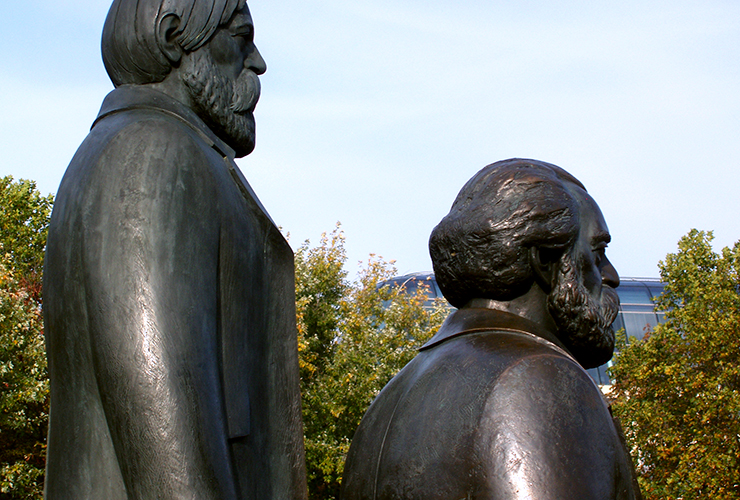The concept of an unconditional basic income is becoming increasingly popular among economists, managers, activists, and entrepreneurs as an alternative to traditional social policy. Instead of providing social benefits in an emergency, during unemployment, or in old age, the government would pay every adult the same lump sum—in Germany, for instance, around 1,000–1,200 euros a month. This would be in place of all other entitlements, including unemployment benefits, and would most likely eliminate pensions as well.
Basic income promises that each person would have the freedom to decide if he or she wants to be employed, do volunteer work—or do nothing at all. It promises politicians the luxury of no longer having to worry about unemployment. And it would give companies an elegant way to justify job cuts. Jobs that fell victim to technological change or globalization would no longer be a problem, as those affected would be financially secure and could look after their children at home or pursue hobbies.
Nevertheless basic income is a dead end. The most common reason cited for this conclusion is, of course, financing: though its costs have not been quantified, it is certain that they would be high. Just how income and wealth should be taxed to pay for it remains an open question. Radically transforming the social system to create a basic income would be the greatest financial gamble in recent history.
But the financial aspect is not even the most important argument against a basic income. Basic income is a seductive poison. It would benefit the margins of society at the expense of the middle class. For the poor and long-term unemployed, basic income would remove the pressure to find work and the unpleasant task of actively look for employment. It most likely would not cost the rich any more than before, and would help ease their conscience. Growing inequality would no longer be a social scandal, since everyone would have an income, albeit close to the poverty line. It is precisely for this reason that there are three main arguments against an unconditional basic income.
First, basic income would further divide society and prevent social mobility. Those who, due to family background, have good prospects for interesting employment and high income would maintain their existing work ethic and engage in school and study, with the option of a sabbatical or two in between. However, life would become more difficult for young people from working-class and migrant families who are already at a disadvantage in terms of education. The sweet poison of basic income would accompany them at every step of their school life and vocational training. When asked what they want to do for a living, children from parts of Berlin with a high percentage of working-class and migrant families, such as Neukölln, today already often say they plan to go on the dole. In the future, they might answer: “I’ll collect my basic income.” Any resolve to invest in themselves and to improve their lives through work would be put to the test every day, and at an age when young people already struggle with themselves and the demands of their environment. And society would be much less concerned about this dilemma than it is today, as everyone would be provided for.
Second, an unconditional basic income lacks social legitimacy. At present, it is impossible to imagine a model that benefits all parts of society equally. It is therefore likely that basic income would redistribute resources from those who are employed to those who are not, or who are only partially employed. Comprehensive social services that go beyond pure poverty control, however, are legitimized by existing concepts of social justice. How else? Norms of social justice include the idea of equal opportunity, giving everyone a shot at making it on the labor market and in the marketplace. This justifies, for instance, public spending on education. An unconditional basic income is, in principle, based on a citizen’s right to income, but in reality a basic income scheme is the opposite of social solidarity with the weaker members of society. The middle class, who would finance the basic income but who would not benefit from it materially, are unlikely to find social justice or solidarity in this “unconditional” redistribution. This is one reason why large redistribution programs are unpopular among voters, even among those who are likely to benefit from it.
Third, an unconditional basic income runs counter to the needs of a society with rapidly growing immigration. Migrant workers and other immigrants need more mechanisms to help with social integration, not fewer. It is the everyday experiences that matter: people meet each other at work, they get to know and appreciate each other, and they learn the language. Considering this, it would be fatal to give people a reason to stop working, to stop improving their qualifications, and to simply stay at home.
Nevertheless we need to debate what constitutes a good society in a way that is not framed entirely around questions of employment and the labor market. Society cannot be improved solely through reform to the labor market, and that needs to be acknowledged. Unconditional basic income is the wrong way to accomplish this.
A version of this essay appeared in German in the Süddeutsche Zeitung on February 7, 2017. This English version, adapted from Social Europe, is courtesy of Hertie School of Governance, Berlin.







